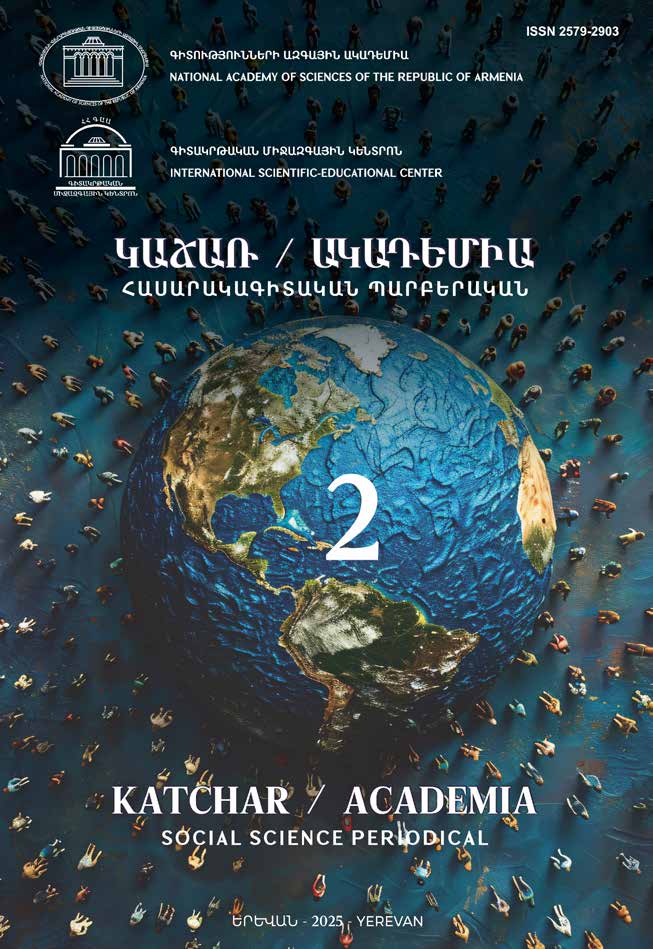THE CONCEPTUAL ASSESSMENT AND DOCUMENTATION OF SECURITY INTERESTS
DOI:
https://doi.org/10.54503/2579-2903-2025.2-190Keywords:
nation, state, security, interest, goal, priority, concept, strategy, policy, doctrineAbstract
In the contemporary world, Armenia's national interests represent a balanced sum of the interests of the citizens of the Republic of Armenia, the Armenians living in their homeland, and the Armenian communities, through the formation of which, in the new competitive conditions, the tasks of achieving national goals and protecting values that have been transformed into conscious needs are being solved.
The main guarantee of an effective policy in the realisation of national interests is maintaining a balance between one's own capabilities, ambitions, and objective realities, which may not fully satisfy a particular interest, serving only its vital and realistic part. The core of guaranteed satisfaction of vital national interests is a realistic assessment of the collective potential of state power and setting ‘realistic goals’ for it.
When assessing national interests at the strategic level, particular attention is also paid to security policy objectives, which are expected to result from a clear and precise definition of interests. From a methodological point of view, when developing a national security strategy, two groups of objectives are considered desired ends: general (strategic, political) objectives and specific (concrete) objectives. In this context, the first group of objectives is significant, as it represents the expected outcomes defined by the state's political elite and towards which this strategy is directed. Consequently, strategic objectives must be logically interrelated and realistic, as the national security strategy is the main level at which the current situation and the national security policy system are coordinated.

Downloads
Published
How to Cite
Issue
Section
License
Copyright (c) 2025 KATCHAR / ACADEMIA. SOCIAL SCIENCE PERIODICAL

This work is licensed under a Creative Commons Attribution-NonCommercial-NoDerivatives 4.0 International License.



